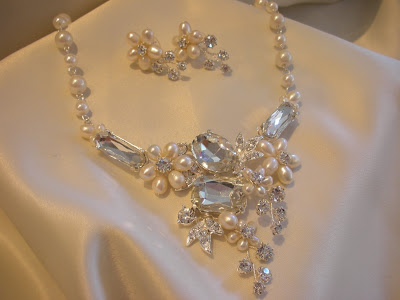During the 19th Century in Europe, especially England luxury markets created a huge demand for pearl terms. "Shell refers to the layers of mother of pearl in the oyster. Nacre is the substance used by an oyster to form a pearl. Nacre has been used for jewelry, buttons, inlays and even notched the aristocracy in England and Europe.
Only a 15000-20000 open oyster is a pearl of nature. The scarcity of pearls and natural beauty was revered as the "queen of pearls". You have been in the royal ornaments used in the world. The most famous of these natural pearls was black "Azure" is the centerpiece of a chain that is part of the crown jewels of Russia.
Unfortunately, the demand was so strong that all population groups have access to oyster black lips very exhausted. Divers had to dive deeper and deeper to find oysters, until the oysters were so few that could not trade to be maintained.
Today, thanks to decades of diligent work of the Polynesian pearl producers have enough we can make necklaces, earrings and pendants.
The Tahitian Black Pearl has become very popular in recent years. See generally black-green and often brings a cast of a certain color.
Tahitian pearls from Pinctada margaritifera tracks, the black lips, dark skin oyster.The this type of shellfish in the breathtaking natural black pearls produced it. Although described as Black Pearls, Tahitian pearls actually in a variety of colors of black gold, silver and even black body come. Do not confuse these pearls with their cousins, the South Sea pearls. South Sea pearls are formed by the Pinctada maxima, commonly called the silver or gold lip oyster. Their colors range from white, gold and pink. black lip oysters are native to the lagoons of French Polynesia, Fiji, Samoa and Cook Islands atolls. Curiously, despite its name, the pearls are not actually found in the waters of the island of Tahiti itself. But Tahiti is still a major commercial center of the natural black pearl.
Only a 15000-20000 open oyster is a pearl of nature. The scarcity of pearls and natural beauty was revered as the "queen of pearls". You have been in the royal ornaments used in the world. The most famous of these natural pearls was black "Azure" is the centerpiece of a chain that is part of the crown jewels of Russia.
Unfortunately, the demand was so strong that all population groups have access to oyster black lips very exhausted. Divers had to dive deeper and deeper to find oysters, until the oysters were so few that could not trade to be maintained.
Today, thanks to decades of diligent work of the Polynesian pearl producers have enough we can make necklaces, earrings and pendants.
The Tahitian Black Pearl has become very popular in recent years. See generally black-green and often brings a cast of a certain color.
Tahitian pearls from Pinctada margaritifera tracks, the black lips, dark skin oyster.The this type of shellfish in the breathtaking natural black pearls produced it. Although described as Black Pearls, Tahitian pearls actually in a variety of colors of black gold, silver and even black body come. Do not confuse these pearls with their cousins, the South Sea pearls. South Sea pearls are formed by the Pinctada maxima, commonly called the silver or gold lip oyster. Their colors range from white, gold and pink. black lip oysters are native to the lagoons of French Polynesia, Fiji, Samoa and Cook Islands atolls. Curiously, despite its name, the pearls are not actually found in the waters of the island of Tahiti itself. But Tahiti is still a major commercial center of the natural black pearl.
















0 comments:
Post a Comment